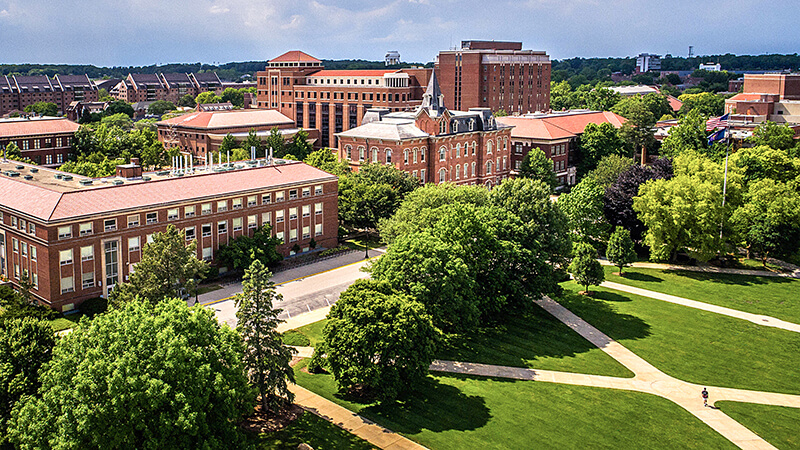July 13, 2020
Expert: Tech that could reduce summer road construction

WHAT: U.S. roads are aging and reaching the end of their service life, resulting in the need for constant repair. States with harsher winters often see more summer road construction, but new technology being developed at Purdue University could benefit concrete infrastructure everywhere.
This technology includes concrete sensors and self-healing concrete that could reduce summer road construction. The sensors are helping to better determine when concrete is strong enough to open up roadways to traffic after a construction project. Self-healing concrete allows concrete to seal its own cracks due to internal chemical reactions within the material.
The research currently applies to concrete, the most challenging road material to repair, but could resolve issues with asphalt and other road materials in the future.
EXPERT: Luna Lu, an associate professor in Purdue’s Lyles School of Civil Engineering, and her team are enabling concrete to prevent and repair its own damage.
Lu also directs the Center for Intelligent Infrastructure, which unites the expertise of Purdue researchers to integrate advanced theories and engineering principles to make infrastructure more sustainable, adaptive and autonomous.
Lu can speak on common issues involving pavement repair and how technologies including self-healing concrete and road sensors provide solutions to road construction.
QUOTE: “The sensor technology will help to understand the strength development of the concrete. Therefore, they can help to guide the traffic and we can understand when to open up the roadways to traffic.
“Most of the road repairs are for potholes, sealing the crack. The developed self-healing concrete not only seals the crack but you can also regain the strength of the property that can extend the service life of the pavement and roads.”
MORE INFORMATION: The sensor technology has been embedded into Indiana highways. California, Texas and Missouri also plan to implement the technology.
Lu is working with the Indiana Department of Transportation to implement the self-healing concrete technology into bridge slabs by 2021.
An Indiana road construction map is available via the Indiana Department of Transportation website.
About Purdue University
Purdue University is a top public research institution developing practical solutions to today’s toughest challenges. Ranked the No. 6 Most Innovative University in the United States by U.S. News & World Report, Purdue delivers world-changing research and out-of-this-world discovery. Committed to hands-on and online, real-world learning, Purdue offers a transformative education to all. Committed to affordability and accessibility, Purdue has frozen tuition and most fees at 2012-13 levels, enabling more students than ever to graduate debt-free. See how Purdue never stops in the persistent pursuit of the next giant leap at purdue.edu.
Media Contact: Kayla Wiles, wiles5@purdue.edu (working remotely, but will provide immediate response)
Writer: Madison Sanneman
Source: Luna Lu, luna@purdue.edu
Note to Journalists: Photos and video of Luna Lu and her lab’s concrete research are available in a Google Drive folder.
Journalists visiting campus: Journalists should follow Protect Purdue protocols and the following guidelines:
- Campus is open, but the number of people in spaces may be limited. We will be as accommodating as possible, but you may be asked to step out or report from another location.
- To enable access, particularly to campus buildings, we recommend you contact the Purdue News Service media contact listed on the release to let them know the nature of the visit and where you will be visiting. A News Service representative can facilitate safe access and may escort you on campus.
- Wear face masks inside any campus building. Wear face masks outdoors when social distancing of at least six feet is not possible.
Journalists visiting campus: Journalists should follow Protect Purdue protocols and the following guidelines:
- Campus is open, but the number of people in spaces may be limited. We will be as accommodating as possible, but you may be asked to step out or report from another location.
- To enable access, particularly to campus buildings, we recommend you contact the Purdue News Service media contact listed on the release to let them know the nature of the visit and where you will be visiting. A News Service representative can facilitate safe access and may escort you on campus.
- Wear face masks inside any campus building. Wear face masks outdoors when social distancing of at least six feet is not possible.

